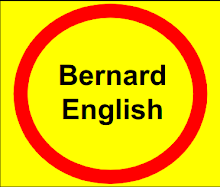FROM: An excerpt from
Tim Curran's Blog.
It’s often said about broadcast writing that it should sound conversational, but what usually goes unsaid are all the little technical things and thoughtful phrasing that goes into giving written prose the feel of conversation. Those techniques will be a large part of my emphasis here.
One such important ‘rule’ (in quotes because, once well understood, rules can be treated as guidelines and cheerfully broken to achieve a desired effect) is avoiding appositives. An appositive is a word or phrase, set off by commas, that further describes the noun it follows. For example:
John Shalikashvili, former chairman of the Joint Chiefs of Staff, is now enjoying his retirement.
Appositives are incredibly common in print newswriting, but in my opinion, they should be incredibly rare in broadcast writing. The reason is, quite simply, that they are incredibly rare in conversational speech and a big red flag that what you’re hearing from your radio or TV was really intended to be read, not spoken.
So how to avoid them? The most common technique in broadcast writing is to turn an appositive into an adjective phrase:
Chairman of the Joint Chiefs of Staff John Shalikashvili is now enjoying his retirement.
the winners of the World's Best Presentation Contest today
by Jbrenman (the most interesting)
by Chereemoore
by Chrislandry
--An Introduction by Thakkar
by Jbrenman
by Chereeemoore

